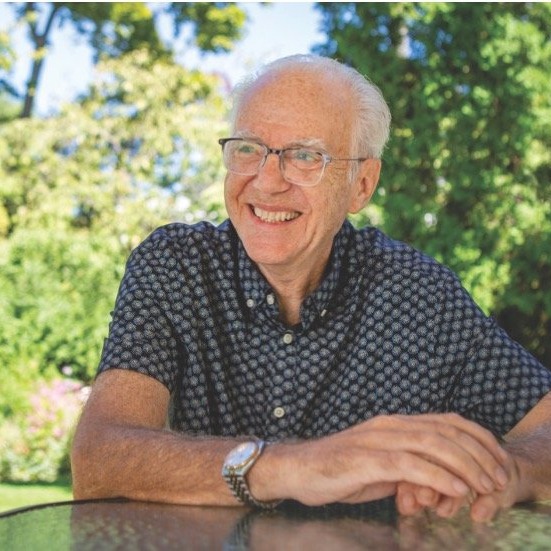Robert StickgoldNobel Conference 60

Robert Stickgold
Professor of Psychiatry, Harvard Medical School and Beth Israel Deaconess Medical Center, and Visiting Professor in the Program in Media Arts and Sciences at M.I.T.
Sleep, Memory, and Dreams: Pulling It All Together
While many of us go to great lengths to stretch the boundaries of our waking hours in an attempt to do and accomplish more, Robert Stickgold has spent his scientific career illuminating all that we accomplish while we sleep. Far from being an idle waste of time, Stickgold’s research shows that sleep, especially that which includes dreaming, may actually be the most productive time in our “day.”
Trained as a biochemist, first at Harvard University and then at the University of Wisconsin, Madison, Stickgold’s scientific pursuits span disciplinary boundaries from biochemistry and neuroscience to consciousness, cognition, and clinical psychology. The work that has emerged from his sleep laboratory has advanced our understanding of the human condition from molecules to mental functioning. Indeed, Stickgold has contributed to understanding the role that sleep plays in the consequences of loneliness, emotion regulation, mental health, psychiatric illness, and socio-political events among other things, and he’s quick to tout sleep’s vital influence on physical health, including vaccine efficacy, immune function, and the mitigation of obesity.
Stickgold’s interest in the role of sleep in the evolution of our memories and emotions has dominated his scientific pursuits. Stickgold and his students have, for several decades now, logged countless waking hours examining individuals who are asleep or deprived of it. They’ve approached these observations from all angles, collecting physiological data that reflect brain activity, coding dream reports, and recording emotions, cognitive function, and behaviors that reveal otherwise invisible operations of the mind. Stickgold has interpreted these data in healthy individuals and in those who suffer from sleep disorders and psychiatric illness. Among the many findings of his creative and complex experimental research is the discovery for which Stickgold is perhaps most widely known: Sleep, particularly the stage during which we experience our most intense dreaming, helps us learn from and remember the experiences we have when we are awake. Among the findings that reflect this discovery: when participants learn a new task, their memory and performance after sleep is better than it was before their heads hit the pillow. This is true even for individuals who suffer from amnesia and have no conscious recollection of learning the task and it is especially true for individuals who report having dreamt about the task. These and other findings from Stickgold’s lab show that, while our bodies appear dormant during sleep, our brains and minds are actively engaged in exploratory processes that couldn’t happen while we are managing the cognitive demands of waking hours. Sleep provides a time offline when our minds are free to identify what is most vital from the myriad details of our waking experiences and integrate these things with our existing knowledge and developing conception of the world--and our dreams likely reflect aspects of this work.
In short, Dr. Stickgold’s science has led the way in understanding the vital role that sleep plays in memory, emotion, and beyond. His findings are a wake-up call that makes clear that getting the most out of our days requires us to get a good night’s sleep.
Robert Stickgold is Professor of Psychiatry, Harvard Medical School and Beth Israel Deaconess Medical Center, and Visiting Professor in the Program in Media Arts and Sciences at M.I.T. He received a PhD in biochemistry from the University of Wisconsin, Madison.
His lecture
All mammals, and arguably all animals, sleep. If we don’t, we die; it’s that simple. But sleep is a complex process, both mechanistically, with multiple sleep stages, and functionally, contributing to many aspects of our wellbeing. Arguably the earliest function of sleep was the offline processing of memories. Sleep, memory and dreaming are inextricably intertwined. While we sleep, our brain reprocesses the memories formed during the preceding day, stabilizing some and strengthening others. It extracts the gist from some and discovers patterns and rules in others. And it integrates these newly processed memories with older, related memories stored in associative networks, creating a network that adds meaning to the memories. Together, these processes constitute a mechanism of “memory evolution,” which continues throughout the lifespan, occurring in the background every night, outside of our conscious awareness.
But we also dream, achieving an altered state consciousness when memories are reprocessed in a different manner, with a different goal. While the memory evolution described above can be seen as examples of convergent thinking, where the brain takes specific information and seeks to alter it in specific ways, dreaming is a process of divergent thinking. Instead of , “how can we solve this problem?” it asks, “what sorts of questions could this new information help answer?” When we dream, the brain engages in Network Exploration To Understand Possibilities, which we shorten to NEXTUP, a process by which the brain takes a current concern seen in its memories from the day and seeks out older, often only weakly related memories, and tests whether these newly discovered associations might be helpful in solving our current concerns. As will be described, conscious dreaming is the only mechanism by which such associations can be tested.